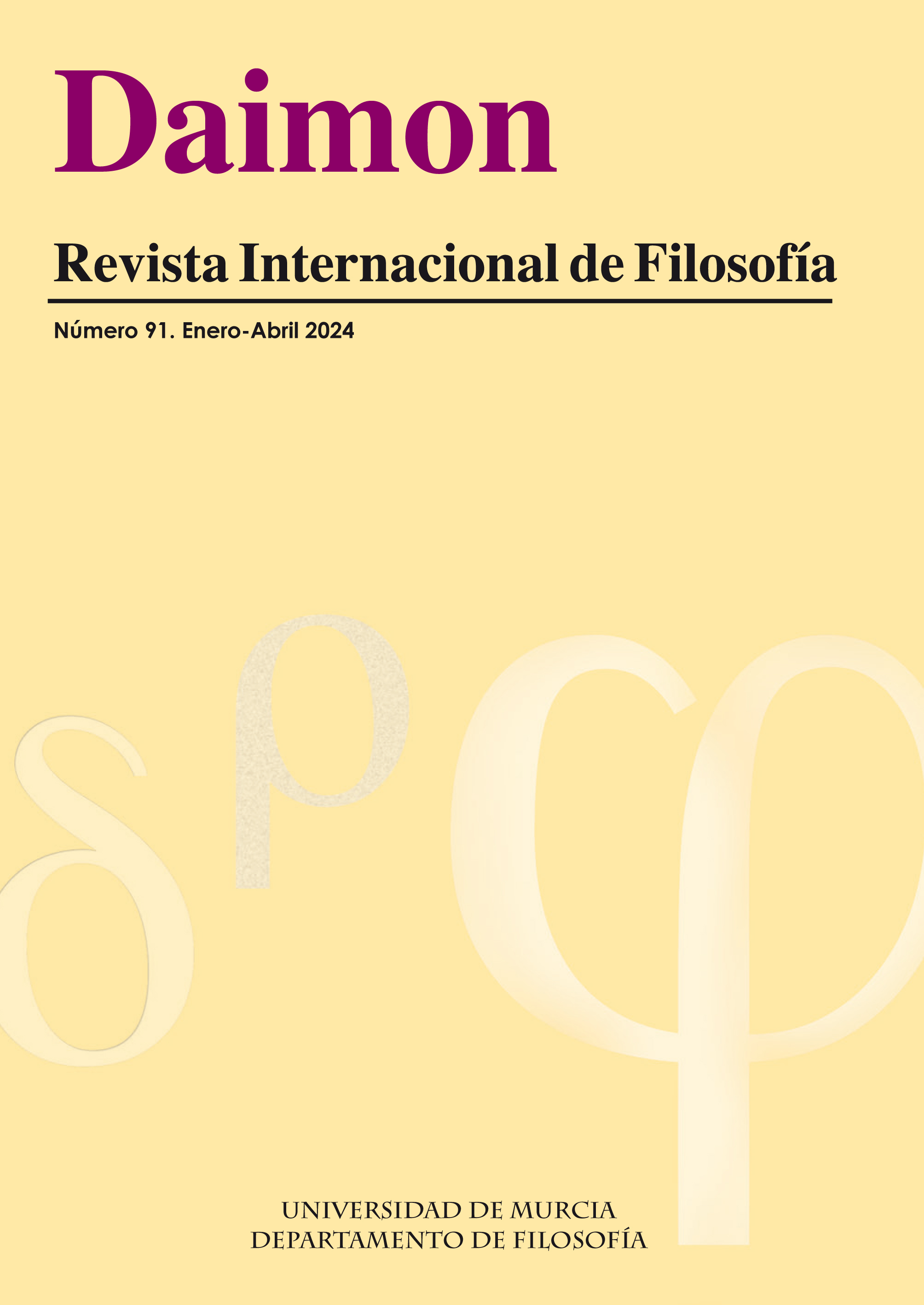Deduction and new knowledge: a scientifically informed proposal to face the paradox of inference
Supporting Agencies
- Este artículo es producto derivado de la investigación posdoctoral realizada con el apoyo de la beca de Estancias Posdoctorales por México de CONACYT.
Abstract
In deduction the truth of the premises guarantees the truth of the conclusion because the conclusion is contained in the premises; because of that many philosophers have denied the possibility of gaining knowledge through deduction or through deductive reasoning, which leads to a problem known as the paradox of inference. To address this problem, I propose a distinction between deductive reasoning as a cognitive process capable of generating new knowledge, and implication as a logical relation between propositions, which accounts for deduction’s validity, and I present scientific evidence to underpin this proposal.
Downloads
-
Abstract809
-
PDF (Español (España))519
-
HTML (Español (España))188
References
Bermudez, J. L. (2014). Cognitive science. An introduction to the science of the mind (Vol. 2a. ed. ). Cambridge University Press.
Bricker, A. M. (2020). The neural and cognitive mechanisms of knowledge attribution: An EEG study. Cognition, 104412.
Bricker, A. M. (2021). Knowledge is a mental state (at least sometimes). Philosophical Studies, 1-21.
Cohen, M., & Nagel, E. (1934). An introduction to logic and scientific method. New York: Harcourt, Brace and Company.
Corcoran, J. (1989). Argumentations and logic. Argumentation, 3, 17-43.
Corcoran, J. (2009). Aristotle’s demonstrative logic. History and philosophy of logic, 30, 1-20.
Duhem, P. (1914). La Théorie Physique: Son Objet et sa Structure. Paris: Marcel Riviera & Cie.
Dummett, M. (1978). The justification of deduction. In M. Dummett, Truth and other enigmas. Duckworth.
Evans, J. S. (2013). The psychology of deductive reasoning. New York: Taylor & Francis.
Eysenck, M. W., & Keane, M. T. (2010). Cognitive Psychology. A student’s handbook (Vol. 6a. ed. ). Psichology Press.
Goel, V. (2007). Anatomy of deductive reasoning. Trends in cognitive science, 11, 435-441.
Greenough, P., & Pritchard, D. (2009). Williamson on knowledge. Oxford: Oxford University Press.
Haack, S. (1982). Dummett’s justification of deduction. Mind, 91, 216–239.
Hintikka, J. (1970). Surface Information and Depth Information. In J. Hintikka, & P. Suppes, Information and Inference. Dordrecht.
Luce, R. D. (1991). Response Times. New York: Oxford University Press.
Mercier, H., & Sperber, D. (2011). Why do humans reason? Arguments for an argumentative theory. Behavioral and brain sciences, 34, 57-111.
Moshman, D. (2004). From inference to reasoning: the construction of rationality. Thinking & Reasoning, 10, 221-239.
Nagel, J. (2013). Knowledge as a Mental state. In J. H. Tamar Szabó Gendler, Oxford Studies in Epistemology, Volume 4 (pp. 275-310). Oxford: Oxford University Press.
Nyberg, L. C. (1996). PET studies of encoding and retrieval: The HERA model. Psychonomic Bulletin & Review, 3(2), 135-148.
Pillow, B. H. (2000). Understanding inference as a source of knowledge: children’s ability to evaluate the certainty of deduction, perception, and guessing. Developmental Psychology, 36, 169-179.
Prado, J. (2011). The brain network for deductive reasoning: a quantitative meta-analysis of 28 neuroimaging studies. Journal of cognitive neuroscience, 23, 3483-3497.
Quine, W. V. (1951). Two Dogmas of Empiricism. In W. V. Quine, From a Logical Point of View (Vol. 2nd Ed., pp. 20–46.). Harvard University Press.
Reverberi, C. (2007). Neural basis of generation of conclusions in elementary deduction. Neuroimage, 38, 752-762.
Rimoldi, F. (2014). ¿Puede el conocimiento ser un estado mental? Análisis Filosófico, 171-201.
Smith, E. E. (2000). Neural bases of human working memory. Current Directions in Psychological Science, 9(2), 45-49.
Smith, E. E., Kosslyn, S. M., & Barsalou, L. W. (2007). Cognitive psychology: Mind and brain (Vol. 6). Pearson-Prentice Hall.
Williamson, T. (2000). Knowledge and its limits. Oxford University Press.
Williamson, T. (2005). Précis of Knowledge and its Limits . Philosophy and Phenomenological Research, 431-435.
Williamson, T. (2009). Probability and danger. The Amherst Lecture in Philosophy, 1-35.
Copyright (c) 2023 Daimon Revista Internacional de Filosofia

This work is licensed under a Creative Commons Attribution-NonCommercial-NoDerivatives 3.0 Unported License.
Las obras que se publican en esta revista están sujetas a los siguientes términos:
1. El Servicio de Publicaciones de la Universidad de Murcia (la editorial) conserva los derechos patrimoniales (copyright) de las obras publicadas, y favorece y permite la reutilización de las mismas bajo la licencia de uso indicada en el punto 2.
2. Las obras se publican en la edición electrónica de la revista bajo una licencia Creative Commons Reconocimiento-NoComercial-SinObraDerivada 3.0 España (texto legal). Se pueden copiar, usar, difundir, transmitir y exponer públicamente, siempre que: i) se cite la autoría y la fuente original de su publicación (revista, editorial y URL de la obra); ii) no se usen para fines comerciales; iii) si remezcla, transforma o crea a partir del material, no podrá distribuir el material modificado.
3. Condiciones de auto-archivo. Se permite y se anima a los autores a difundir electrónicamente las versiones pre-print (versión antes de ser evaluada) y/o post-print (versión evaluada y aceptada para su publicación) de sus obras antes de su publicación, ya que favorece su circulación y difusión más temprana y con ello un posible aumento en su citación y alcance entre la comunidad académica. Color RoMEO: verde.











